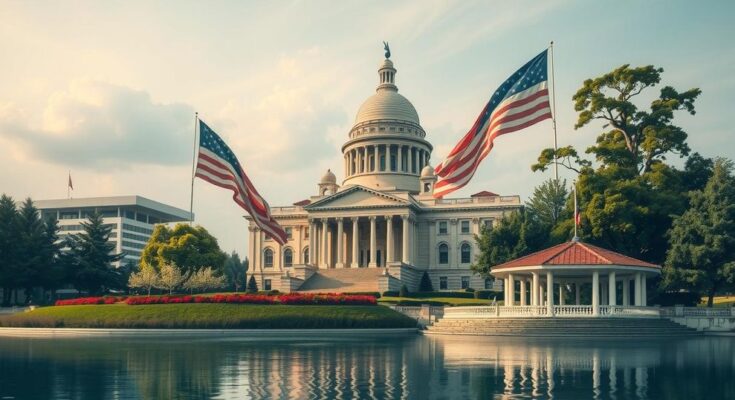Guinea-Bissau’s President Umaro Sissoco Embalo has announced his intention to seek a second term in the upcoming elections, reversing his previous pledge to step down. This decision has reignited political tensions amid claims from the opposition that his term expired in February. The Supreme Court has ruled that his mandate continues until September, complicating the political landscape further as elections are postponed until November 30.
President Umaro Sissoco Embalo of Guinea-Bissau has declared his candidacy for a second term in the upcoming elections scheduled for November. This announcement contradicts his previous commitment to vacate office, thus escalating existing tensions surrounding the country’s electoral process. Embalo’s return from a diplomatic mission to Russia, Azerbaijan, and Hungary coincides with growing opposition claims that his term ended in February.
Despite claims from political adversaries, the Supreme Court of Justice has determined that Embalo’s mandate remains valid until September, a ruling that exacerbates the political discord within this coup-prone nation. Furthermore, his decision to postpone both legislative and presidential elections until November 30, a year later than originally planned, has drawn significant frustration among citizens and opponents alike. He attributes the delays to technical and financial issues, contributing to an increasingly complex political environment.
Having narrowly escaped two coup attempts, the most recent occurring in December 2023, Embalo now finds himself engaged in a critical electoral battle. How the opposition will respond to his extended tenure remains uncertain, as they weigh their options in contesting his continued leadership in a tumultuous political landscape.
In conclusion, President Umaro Sissoco Embalo’s bid for re-election represents a significant shift from his earlier commitment to relinquish power. This decision, coupled with the disputed legitimacy of his term and the delayed elections, continues to heighten political tensions within Guinea-Bissau. The outcome of this electoral contest underscores the precarious nature of stability and governance in a country historically marked by political unrest and coup attempts.
Original Source: www.gamereactor.eu




